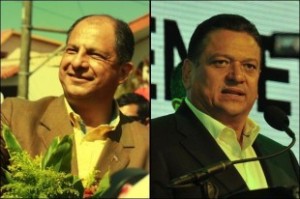Costa Rica News – The need for change in Costa Rica is a constant feature today in the electoral speeches due to the large number of incidences of corruption, the increasing inequality in the population and the inability to reduce poverty.
 According to statements of Henry Mora, elected deputy for the Citizen Action Party, to Prensa Latina, the three pillars of the plan of that central-left organization aim at stop and revert those problems.
According to statements of Henry Mora, elected deputy for the Citizen Action Party, to Prensa Latina, the three pillars of the plan of that central-left organization aim at stop and revert those problems.
For that political force-which candidate Luis Guillermo Solis, won the general elections of February 2nd, the priority will be to fight hard against corruption at all levels of State, including tax evasion, said the deputy via Internet.
Other objectives include to revert the increase in inequality and to eradicate extreme poverty that affects more than 320,000 people.
According to the professor of Economy at the National University, recognized by his scientific works denouncing the possible effects of the Free Trade Agreement between Central America, Dominican Republic and the United States, some aspects distinguish this time the electoral environment in Costa Rica.
The fact that the Citizen Action Party goes again to a second round next April 6th and the growth of the left wing are two remarkable topics amid this panorama, said Mora.
That associated to other new element, the possibility, for the first time after 65 years, that parties and traditional sectors do not win a general election in the country.
Costa Rica once promoted as Central American paradise, became one of the more unequal nations in Latin America, according to the 19th State of the Nation and promoted somehow the abstentions registered in the first round (over 31 percent).
To reduce that number is one of the main challenges for the second round of elections, in which the Citizen Action Party candidate will compete against the former mayor of the capital Johnny Araya, from the ruling National Liberation Party.
The winner in next elections will run the country from 2014 to 2018 and will have to use dialogue and try to reach consensus within a fragmented Legislative Assembly, marked by an ideological polarization, not very usual in the history of Costa Rica.
By: Isabel Soto Mayedo, From Prensa Latina

